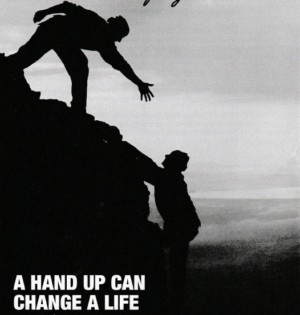Edgar Schein in his seminal work, Career Dynamics and its companion workbook, Career Anchors, described a model of the Major Stages of a Career. There are 10 Stages in his model ranging from Stage 1:
A lot of social and institutional energy and investment goes into Stage 2: Education and Training, but comparatively little (and less than in decades past) in Stages 3 and 4: Entry into the World of Work, and Basic Training and Socialization. These two stages typically occur over a ten year period from approximately age 15 to age 25.
Stage 3, Entry into the world of work, is largely left to the service sector, especially ‘mcJobs’: hamburger flippers at McDonalds, stock clerks at Canadian Tire, cashiers at Metro, baristas as Bridgehead coffee shops. These jobs – highly suitable to 17 year-olds as after-school part-time jobs – play a useful role in this earliest phase of a career. But these jobs are wholly unsatisfactory for a person ready for Stage 4 in a maturing career.
Early service level jobs contribute to learning in two important ways: being responsible to an employer – just showing up and following instructions are important skills; and the self-responsibility for earning and managing one’s own money. Summer jobs for students provide a similar role, but may also address the need to finance, at least in part, their own education. Without these jobs young people are developmentally delayed and instead may learn dependency and the attendant loss of self-esteem.
Stage 3 of Schein’s model would, in other times perhaps, evolve naturally into Stage 4: Basic [institutional] Training and Socialization. Students lucky enough to be in cooperative education programs, and are assigned to actual jobs with substance, gain an early advantage in this critical initiation/transition process. Young people with this first real foothold in the world of work begin to figure out not only how to work the photocopier and make entries in the company’s CRM software, they also ‘learn the ropes’, begin the process of understanding how the culture of the organization works, what the standards of decorum and work expectations are, the world of conformity and conspiracies and politics, how to survive and thrive in organizational life.
But Stage 4 is increasingly being missed by Gen Ys and soon, Millennials.
Many young people these days are not getting the opportunity to learn these critical Stage 4 life lessons, and instead languish in Stage 3 and perpetuate socially unacceptable behaviours, hold unconventional workplace attitudes, manifest undergraduate manners, and even hermit mentality, living in their parents’ basements.
It shouldn’t be surprising that Gen-Ys and Millennials are viewed with a jaundiced eye by older workers (Gen-X??!): they don’t know how to behave because they’ve never been given real opportunity to progress from school to work and develop social skills in organizational life.
But this is not just the fault of parents who didn’t adequately socialize the kids, nor of the schools, nor even of governments who somehow have not ‘created’ enough opportunities for young people to enter the workforce. It is also the fault of society as a whole and corporate responsibility in particular in failing to provide those crucial entry level jobs and opportunities. Instead the corporate world (and not just private business) have adopted an attitude of, ‘this is not my responsibility, my responsibility is to my shareholder (stakeholder, members, pension fund) and I have to be ever vigilant to managing costs’. This often results in off-shoring jobs to developing (low cost) nations, and there is no room for new grads just entering the workforce. What we are doing as a society, of course, is not just increasing short-term ‘shareholder value’ but creating long term deficits in societal robustness.
What does all this have to do with Interns? Despite all the negative commentary about the inequity, even ethics, of engaging unpaid interns (usually recent graduates), in fact the internship strategy is not wrong thinking. (Not All Internships are Bad, Toronto Star.)
Internships, conceptually, are an extension of the cooperative education model. When Universities and Colleges (even high schools) promote cooperative employment/education programs all three parties benefit: the student (experience), the school (reputation, more students), and the corporation (public weal). So what is needed is to extend this model into that first entry job after graduation.
While I am more a classical liberal in my political views it seems to me that in this instance young people need an assist in this critical stage of career development since modern organization values seem to have left this one behind. What’s needed then is organized, concerted, policy effort to influence employers (in every sector) to give as many people in Gen-Y and Millennials as want it that critical first step: institutional socialization. This will not only benefit these early career entry-ists, it will benefit society as a whole. And employers may realize there is a benefit for them too.



